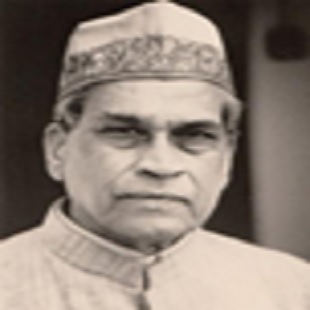
V. A. Sundaram was born on 2 February 1896, in Coimbatore. He was an activist in the Indian Independence movement, an associate of Mahatma Gandhi, a confidant of Madan Mohan Malaviya, and a fundraiser and secretary of the Banaras Hindu University (BHU). His work focused on communication and public relations, with particular emphasis on an international and intercultural perspective. Halfway through his studies, he was captivated by the idea of Indian Independence and attended a meeting of the Indian National Congress for the first time in December 1914 in Madras. When Sundaram heard Mahatma Gandhi delivering a speech in Madras in April 1915, he instantly decided to give up his studies and follow Gandhiji as a disciple. Impressed by the 19-year-old's fervor, Gandhiji took him along to Ahmedabad, where Sundaram was to become one of the first inmates of Gandhiji's newly founded Sabarmati Ashram. Gandhiji's ashram discipline and dietary regime, however, proved too hard for Sundaram and, suffering from malnutrition, he left after 9 months. Based at Coimbatore and Madras, Sundaram began implementing Mahatma Gandhi's concept of village development, introducing weaving and spinning activities at Vellore. Gandhiji employed him as a regional worker for various activities in the South. Gandhiji's circular letter of October 1919, calling for a nationwide hartal with reference to the Khilafat movement was addressed to 28 of India's leading Independence activists, including V. A. Sundaram. Sundaram built up close and cordial relationships with leading Independence activists of Tamil Nadu, namely C. Rajagopalachari, C. Vijayaraghavachariar, and Sir Subramania Iyer. Under their guidance and with Gandhiji's support, he engaged in the cause of the Bengal interments of 1917, in the Vaikom Satyagraha of 1925, the Salt Satyagraha of 1930, and the Civil disobedience campaigns of 1930 and 1931. He was arrested in Madras in early 1931 – an incident that attracted considerable public attention and ed Gandhi to send a note of protest to Viceroy Lord Irwin as well as a press statement to Reuters.